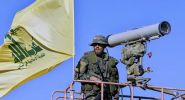
Six Lebanese soldiers lost their lives on Saturday, August 9, in a powerful blast in the Zebqine valley near Majdel Zoun, in the Tyre district.
The soldiers, who were part of the Engineering Unit, were carrying out a mission to dismantle an ammunition depot alongside members of the Fifth Brigade when the explosion occurred.
This tragedy comes at a particularly sensitive time. Just days earlier, the Council of Ministers tasked the army with developing, by year’s end, a plan to disarm Hezbollah and other armed groups, an objective fiercely opposed by the pro-Iranian faction.
Only two days before the explosion, the United Nations Interim Force in Lebanon (UNIFIL) announced the discovery of a fortified tunnel network in the same area, housing artillery, missiles and anti-tank mines.
Both incidents took place south of the Litani River, within the zone covered by the ceasefire agreement of November 27, 2024.
These coinciding developments have further escalated tensions between the Lebanese government and Hezbollah. On social media, some highlighted recent statements by MP Mohammad Raad, who warned that if the army moved to seize weapons, his party “would know exactly what to do,” cautioning that the government’s decision threatened civil peace.
Three Hypothetical Scenarios
According to a senior military source who wished to remain anonymous, three scenarios are considered plausible.
The first is accidental mishandling during the operation. Although the soldiers involved were experts in demining and explosive disposal, dealing with old or unstable munitions always carries risks. A simple shock, an incorrect cut to a detonator or a misjudgment of the charge could be enough to trigger an explosion.
The second hypothesis points to a technical malfunction of the munitions themselves. Over time, moisture or corrosion can degrade internal components, making the explosives unstable and prone to spontaneous detonation. If confirmed, this would raise serious questions about the storage conditions of these munitions before being handed over to the army.
The third and most politically charged scenario is that of a deliberate trap. An explosive device may have been hidden in the depot to detonate during any attempt to dismantle it. Such an act would aim to discourage efforts to confiscate weapons and send a clear message to the government about the alleged impossibility of carrying out a disarmament process without significant human casualties.
“If this theory is confirmed, it could not only halt the ongoing operations but would also significantly escalate tensions between the army and Hezbollah,” the same source said.
As for the possibility of Israeli involvement, the source ruled out this hypothesis, stating that no Israeli army incursions have been observed in Zebqine.
The incident echoes a previous tragedy last April in Braiqaa, in the Nabatieh region, where three soldiers were killed and five civilians injured in an explosion involving munitions transported by the Engineering Unit.
The ongoing investigation must establish whether the Zebqine explosion resulted from an accident, a deliberate act or another scenario yet to be determined, all amid persistent political tensions surrounding the issue of disarmament.




Comments